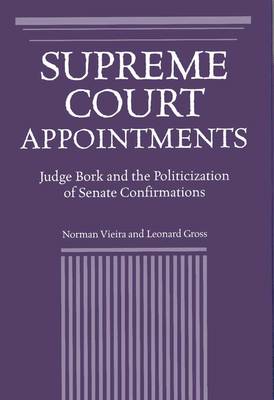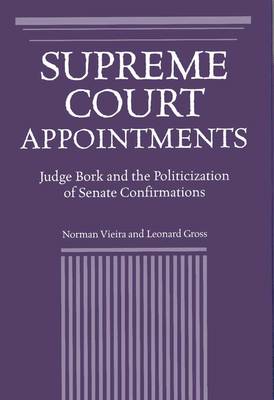
Je cadeautjes zeker op tijd in huis hebben voor de feestdagen? Kom langs in onze winkels en vind het perfecte geschenk!
- Afhalen na 1 uur in een winkel met voorraad
- Gratis thuislevering in België vanaf € 30
- Ruim aanbod met 7 miljoen producten
Je cadeautjes zeker op tijd in huis hebben voor de feestdagen? Kom langs in onze winkels en vind het perfecte geschenk!
- Afhalen na 1 uur in een winkel met voorraad
- Gratis thuislevering in België vanaf € 30
- Ruim aanbod met 7 miljoen producten
Zoeken
Supreme Court Appointments
Judge Bork and the Politicization of Senate Confirmations
Norman Viera, Leonard Gross, Norman Vieira
Hardcover
€ 46,45
+ 92 punten
Omschrijving
Providing an in-depth analysis of the political and legal framework surrounding the confirmation process for US Supreme Court nominees, this text examines especially the Judge Robert Bork confirmation controversy in the Presidency of Ronald Reagan.
Specificaties
Betrokkenen
- Auteur(s):
- Uitgeverij:
Inhoud
- Aantal bladzijden:
- 384
Eigenschappen
- Productcode (EAN):
- 9780809322046
- Verschijningsdatum:
- 11/11/1998
- Uitvoering:
- Hardcover
- Gewicht:
- 456 g

Alleen bij Standaard Boekhandel
+ 92 punten op je klantenkaart van Standaard Boekhandel
Beoordelingen
We publiceren alleen reviews die voldoen aan de voorwaarden voor reviews. Bekijk onze voorwaarden voor reviews.









